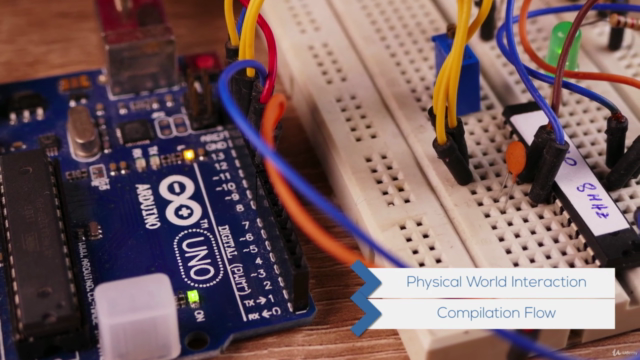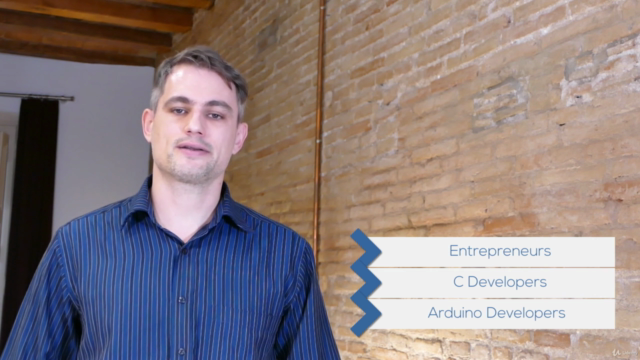Arduino under the Hood - AVR for Professionals

Why take this course?
🌟 Arduino under the Hood - AVR for Professionals 🌟
Are you ready to dive deep into the world of Arduino and AVR microcontrollers? "Arduino under the Hood - AVR for Professionals" is not just another online course; it's an extensive exploration into everything that happens beneath the surface of your favorite maker's platform.
Course Overview: This isn't your typical introductory course. We're going beyond the basics and diving into the nitty-gritty details of the ATmega328P microcontroller at its core. You'll learn how to write high-performance, low-power code that can run on battery power for years! And the best part? The skills you gain are transferable to a wide range of microcontrollers, not just Arduino.
What You'll Learn:
- Comprehensive Compilation Process: Understand how the GNU Compiler Collection translates your code into machine instructions and why each step is crucial for optimizing performance.
- Proficient in C: Enhance your understanding of C with a focus on pointers, which are essential for efficient programming.
- AVR Microcontroller Mastery: Discover how to transition from the user-friendly Arduino library to the raw power of AVR, learning to do more with less.
- Makefiles Explained: Learn how to compile your code using Makefiles, and master the shortcuts that will save you time and effort.
- Error Avoidance in C: Identify common pitfalls in C programming and how to sidestep them to write more reliable and secure code.
Deep Dive into Peripherals:
- Timers, Counters, and PWM: Learn how to manage these essential components for timekeeping and controlling motor speeds or LED brightness.
- Interrupts: Understand how to use interrupts to respond promptly to events like button presses or sensor data updates.
- Communication Protocols: Get hands-on experience with UART/USART, I2C/TWI, SPI, DHT & 1-Wire, and USI, and even learn how to emulate other protocols!
- Analog-Digital Converter: Explore the ADC's capabilities, including measuring temperature and battery level without additional components.
- Analog Comparator: Discover how this component can be used for comparisons and triggering events based on analog voltage levels.
- Non-volatile Memories: Dive into flash memory usage for constants and in-program execution, as well as the role of EEPROM in maintaining data across resets.
- Fuses: Learn about clock sources, lock bits, and how to ensure your microcontroller behaves as expected.
- Power Saving Techniques: Master strategies to extend battery life, such as sleep modes, dynamic clock frequency adjustments, and turning off unused components.
Practical Skills:
- Debugging: Engage with practical examples, simulators, JTAG, and debugWIRE to diagnose and fix issues in your code.
- Parallel Task Execution: Learn how to run multiple tasks concurrently without overwhelming the system.
Bonus Content:
- Running AVR on a Breadboard: Get hands-on experience with setting up and using AVR chips directly on a breadboard.
- Optimization for Resource Constraints: Discover how to optimize your software to get the best performance out of limited microcontroller resources.
Why Take This Course? After completing this course, you'll be equipped with the knowledge and skills to critically evaluate existing software, as well as create your own highly optimized implementations for deployment on small microcontrollers. You'll also be able to extend battery life and achieve peak performance from your hardware.
This is not just another course; it's a journey into the heart of embedded systems that will elevate your understanding and abilities as an engineer or maker. Join us, and transform your approach to microcontroller programming! 📚👩💻🔬
Course Gallery




Loading charts...